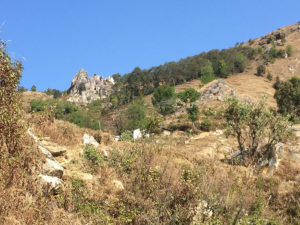Geothermal energy, or power harnessed from the heat within the Earth’s core, offers a unique solution for those seeking off-grid electricity.
Unlike other renewable sources that are weather-dependent, geothermal energy is consistent and reliable, providing a steady supply of heat and electricity to meet the needs of homes and businesses.
Whether you live in a seismically active region or near a hot spring, harnessing this enduring power can provide long-term sustainability without sacrificing comfort or convenience.
Abundant Resource
Geothermal energy is available everywhere, with over 10,000 known hot springs and geothermal reservoirs around the world. This makes it a virtually unlimited resource, unlike fossil fuels which are finite.
These natural wonders are abundant in both developing and developed countries, offering a reliable and sustainable source of renewable energy.
In fact, there are so many geothermal resources that the International Geothermal Association estimates that only 0.1% of the total geothermal potential has been tapped so far.
This vast availability of geothermal energy is a major advantage over fossil fuels, which are finite and contributing to climate change.
With advancements in technology and drilling techniques, the potential for geothermal energy is limitless, providing a vital solution for a cleaner and more sustainable future.
Low Maintenance
Geothermal energy systems are relatively low maintenance compared to other forms of renewable energy, such as solar and wind power. This is because the heat from the Earth is constantly available, eliminating the need for periodic equipment replacement or maintenance.
Geothermal energy systems are a dependable and low-maintenance source of renewable energy.
Unlike solar and wind power, which require periodic maintenance and replacement of equipment, geothermal energy systems can operate continuously without interruption.
This is because the heat from the Earth is constantly available, eliminating the need for frequent equipment replacement or maintenance.
In fact, the most significant maintenance requirement for geothermal energy systems is the periodic replacement of the fluid that transfers heat from the Earth to the power generation equipment.
This replacement is typically required every 5-10 years, depending on the system’s design and operating conditions.
Moreover, geothermal energy systems are often designed to be modular and expandable, allowing for easy upgrades and improvements as technology advances.
This means that geothermal energy systems can provide a long-lasting and reliable source of clean energy, making them an attractive option for those looking to transition to renewable energy sources.
Baseload Power
Geothermal energy can provide baseload power, meaning it can generate electricity consistently and reliably, day and night, regardless of weather conditions. This makes it an attractive option for powering critical infrastructure such as hospitals, data centers, and emergency services.
Geothermal energy is an attractive option for providing baseload power, meaning it can generate electricity consistently and reliably, day and night, regardless of weather conditions.
Unlike solar and wind power, which can be affected by changes in weather and seasonality, geothermal energy is produced by harnessing the heat from the Earth’s core, making it a reliable and consistent source of power.
This consistency is particularly important for powering critical infrastructure such as hospitals, data centers, and emergency services, which require a steady supply of electricity to function effectively.
Geothermal energy is a renewable source of power, reducing the need for fossil fuels and lowering carbon emissions, making it a clean and sustainable option for baseload power.
Overall, geothermal energy offers a reliable, consistent, and sustainable source of power, making it an attractive option for powering critical infrastructure.
Zero Emissions
Geothermal energy is a zero-emission energy source, meaning it does not produce any greenhouse gases or air pollution during operation. This makes it a clean and environmentally friendly option for powering remote or off-grid locations.
Geothermal energy is a zero-emission energy source that offers a clean and environmentally friendly option for powering remote or off-grid locations.
Unlike traditional fossil fuels, geothermal energy does not produce any greenhouse gases or air pollution during operation, making it a reliable and sustainable choice for powering various applications.
The process of harnessing geothermal energy involves extracting heat from the Earth’s core, which is then used to generate electricity or provide heating and cooling.
This method is not only renewable and zero-emission, but it also has the potential to significantly reduce our reliance on fossil fuels and decrease our carbon footprint.
With the right technology and infrastructure in place, geothermal energy can be a reliable and sustainable solution for powering remote and off-grid locations, while also contributing to a cleaner and healthier environment for future generations.
Reduced Water Usage
Unlike traditional fossil fuel-based power plants, geothermal energy systems require very little water to operate, making them ideal for areas where water is scarce.
Geothermal energy systems offer a unique advantage over traditional fossil fuel-based power plants: they require very little water to operate.
This is especially important in areas where water is scarce, as geothermal systems can generate electricity without compromising the local water supply.
In contrast, traditional fossil fuel-based power plants rely heavily on water to cool their systems, which can lead to water shortages and strain local resources.
With geothermal energy systems, however, only a small amount of water is needed for steam extraction and injection, making them an ideal choice for water-constrained regions.
This not only helps conserve water resources, but it also eliminates the need for costly and complex water treatment systems, resulting in a more sustainable and environmentally-friendly power generation process.
High Efficiency
Geothermal energy systems can achieve high efficiency levels, with some plants producing up to 24/7 power with an availability of over 90%. This means that a significant amount of energy can be generated from a relatively small installation.
Geothermal energy systems are a reliable and efficient source of renewable energy, capable of achieving high efficiency levels and producing power on a consistent basis.
These systems utilize the natural heat of the Earth to generate electricity, which can be done at any time of the day or night, and in any weather conditions.
This means that geothermal power plants can operate 24/7, with an availability of over 90%, making them a highly reliable source of energy.
Furthermore, the energy generated by these systems is clean and sustainable, as it is produced without the release of harmful greenhouse gases or other pollutants.
Geothermal energy systems require a relatively small installation compared to other forms of energy production, which makes them an attractive option for communities and industries looking to reduce their carbon footprint and switch to renewable energy sources.
Overall, geothermal energy systems are a highly efficient and reliable source of clean energy, making them an ideal choice for those looking to reduce their dependence on fossil fuels and switch to renewable energy sources.
Long Lifespan
Geothermal energy systems can last for decades, with some plants still in operation after 50 years of service. This makes them a reliable long-term energy solution, especially for off-grid locations where a consistent power supply is critical.
Geothermal energy systems are built to last, with many plants still in operation after 50 years of service.
This remarkable longevity makes them an exceptionally reliable long-term energy solution, particularly for off-grid locations where a consistent power supply is important.
Unlike traditional fossil fuel-based power plants, geothermal energy systems do not rely on finite resources that are subject to market fluctuations and geopolitical instability.
Instead, they tap into the abundant and renewable heat of the Earth, ensuring a stable and sustainable source of energy for decades to come.
With proper maintenance and upkeep, geothermal power plants can continue to operate with high efficiency and minimal downtime, providing a consistent and reliable source of energy for long-term energy independence.
Can Complement Other Energy Sources
Geothermal energy can be used as a complement to other renewable energy sources, such as solar or wind power, to create a hybrid energy system that provides a more consistent and reliable power supply.
Geothermal energy can be a valuable addition to hybrid energy systems that combine multiple renewable energy sources.
By leveraging the consistent and reliable heat produced by the Earth’s interior, geothermal energy can provide a steady stream of power to complement other renewable sources like solar or wind power.
For example, during periods of low sunlight or calm winds, geothermal energy can help bridge the gap in power supply, ensuring a consistent and reliable energy supply.
By integrating geothermal energy into a hybrid system, excess energy can be stored for later use, further increasing the overall efficiency and reliability of the system.
Overall, geothermal energy offers a promising solution for creating a more consistent and reliable power supply, making it an attractive option for communities looking to transition to renewable energy sources.
Want More? Dive Deeper Here!
Hey there! If you’re the type who loves going down the rabbit hole of information (like we do), you’re in the right spot. We’ve pulled together some cool reads and resources that dive a bit deeper into the stuff we chat about on our site. Whether you’re just killing time or super into the topic, these picks might just be what you’re looking for. Happy reading!






